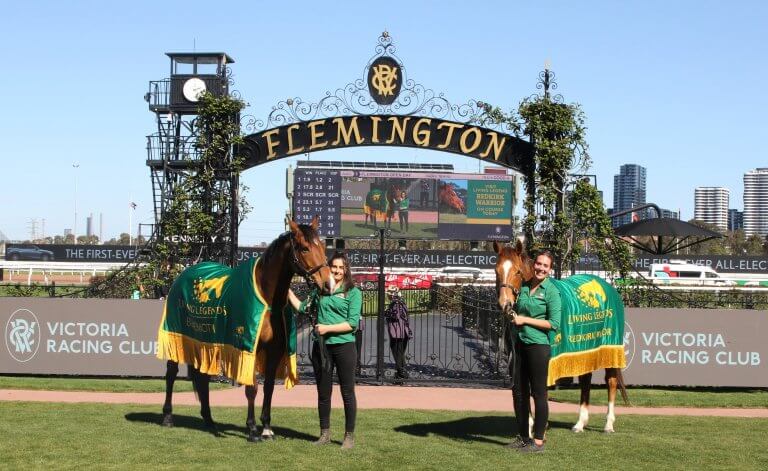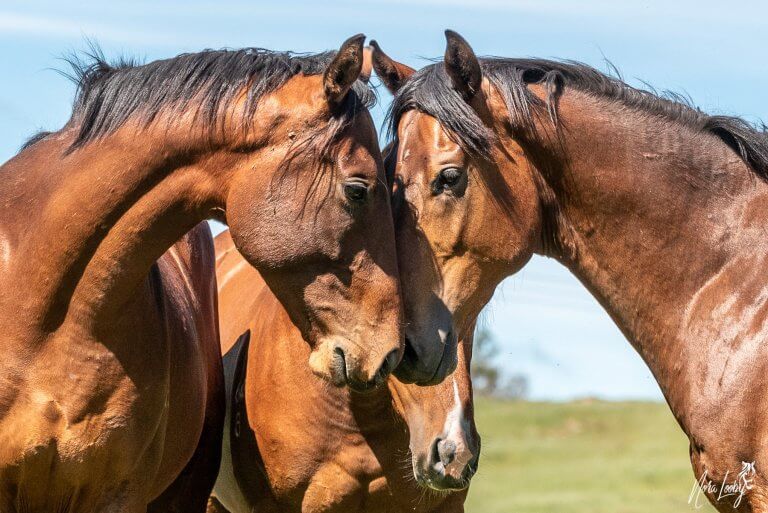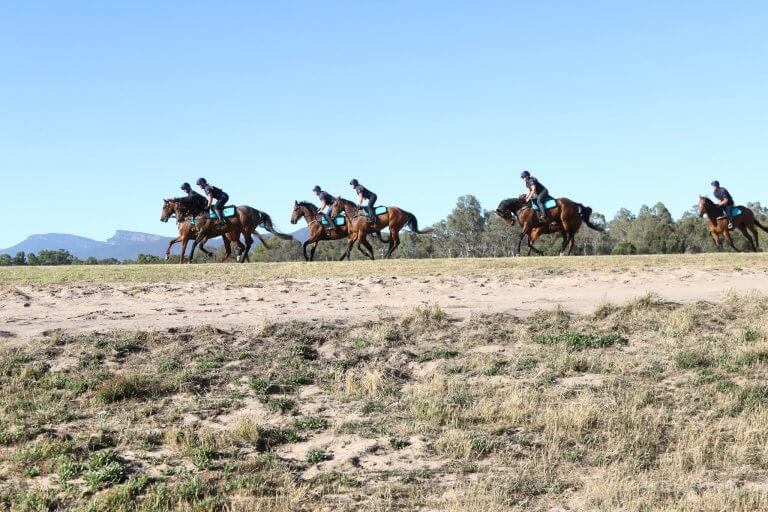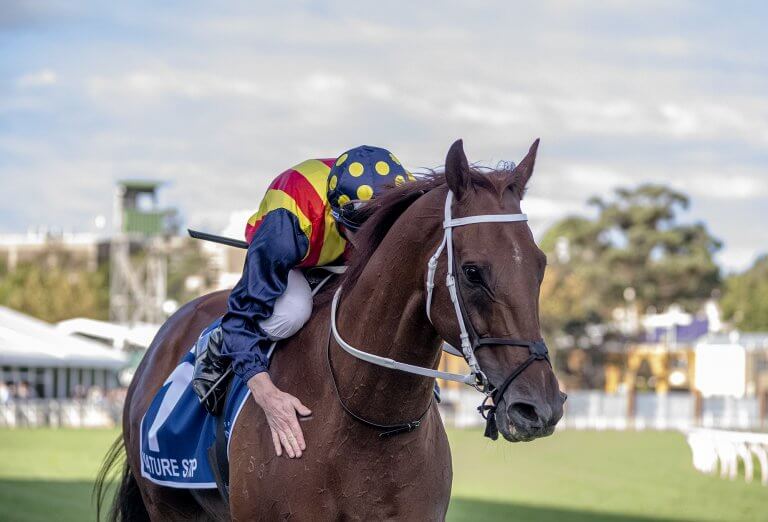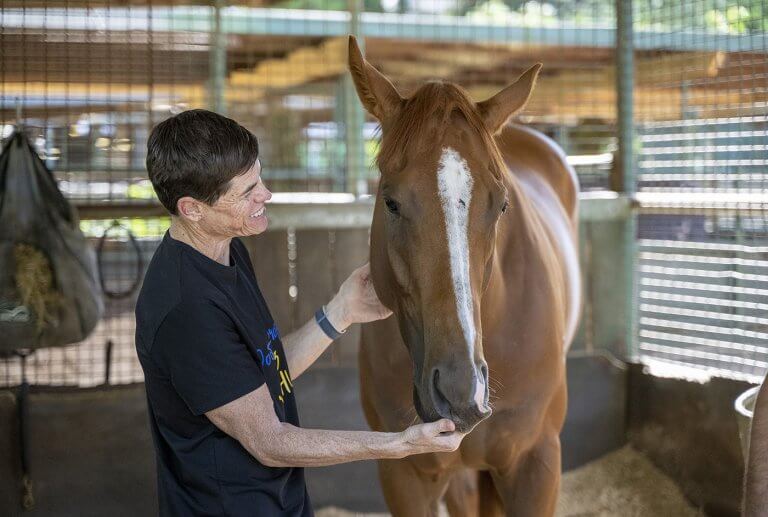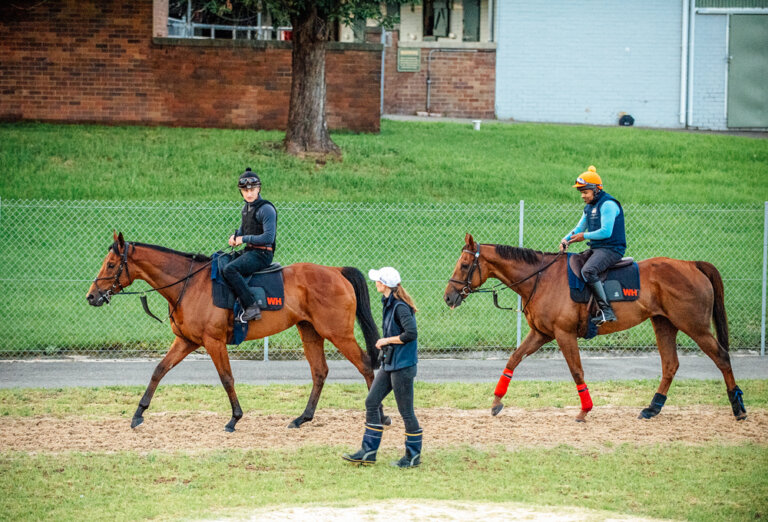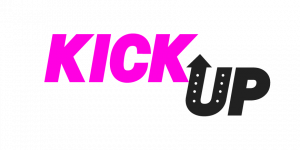Three Bridges Thoroughbreds raises their horses in the most natural environment, with the utmost care. On the second day of the Magic Millions Broodmare Sales this week, the operation sold its most expensive horse ever, Zabeel mare Zenaida, the dam of Group 1 winner Sunshine In Paris and in-foal to Maurice, for $1.4 million to Yulong Stud. We take a closer look at the Liston family’s dedication to giving these equine athletes the very best start to life.
The Liston family’s Eddington property is picturesque at the best of times, but when foals are in for weaning it is downright serene; keeping a foal content and happy is critical to the success of the weaning process.
“They are leaving the safety blanket of their mother and it can be a traumatic experience for them,” said Toby Liston.

Naturally speaking, foals are weaned from their mother when they can no longer receive the required nutritional requirements from the mare’s milk and need to take on hard feed like grasses and grains to make up their diet.
“We don’t start before five months. Our nutritionist is happy any time after four months, because at that stage the mare’s milk loses that immunity-boosting element, and the colostrum begins to lose its potency,” said Liston.
“Everything we do on our farm is done as naturally as possible. Weaning them is the first major human intervention for a foal, so we let their natural system tell us when they are ready to start.”
The readiness of each foal at Three Bridges is assessed individually, from their size and weight and general health to observations of their curious wanderings away from their mum in the paddock as cautious confidence grows.
But the process of engaging independence begins much earlier in the life cycle.
“Pauline (Liston family matriarch) introduces herself to the foals in their first ten days of life. She gently teaches them to accept a bum rope and light lead so that they begin to know that humans are nice,” Liston explained.
“It’s a very light and gentle education, but it does wonders for them. Whether you are growing out sheep, cattle or thoroughbred horses, the weaning process is key for their development. The easier that process for the animal, the better their life will be – good weaning sets a young racehorse up for the rest of their life.”
The weaning process at Three Bridges takes around ten days in total. Foals enter the stable barn in groups of nine plus an older nanny, and they are kept in the same groups that they grew up with in the paddocks on the farm.
“It’s like they go from mother’s group to kinder. We keep them with their mates so they have that added layer of comfort around them,” said Liston.
“We spend time walking them out and away from their mum and they learn that it’s okay to be away from her. We introduce them to the barn and their own box in the stable, they can see their mates and they can see the nanny. They call out for mum for a day or so, but soon they settle down. We walk them twice a day in those first few days so they are out and active and their minds are occupied.”
The bonds of trust that are nurtured between staff and foals is crucial as the young horses are exposed to different stimuli, but humans are not there to kiss and cuddle. It is a working relationship and one that should be fostered with mutual care and respect.
It is a process not dissimilar to kindergarten for human relevance. Lessons are short and are taught more often in two to five minute sessions, where the foals are taught to accept different pieces of gear like head collars and leads, or different experiences like the wash bay for a shampoo and clean.
Lessons end on a positive note to reinforce the desired outcome.“You stop when they do it well, and you give them a pat and some kind words, you reward that behaviour and outcome that you want. There’s a lot of patience involved, but if you don’t overload them, they learn quickly,” said Liston.
A nutritionist consultant creates a diet that makes the transition from mare’s milk to hard feed easier on young tummies. How each horse is coping is reflected in its feed bin – a healthy appetite means a happy horse.
“The mentally strong ones always eat up on the first day and I love seeing that. A clean bin means they are happy and settled in, they’ve handled that initial stress,” said Liston.
“Our nutrition program is designed to give them the dietary requirements they need without giving them excess energy and we feed as much as we can from our own soil. We add a nutritional pellet or oats to top things off as needed,” said Liston.
After ten days, the newly independent foals are turned out to paddocks with their mates and a nanny for the first time ready to explore on their own. But they are never far from the watchful eyes of the Three Bridges team.
“If you treat your kids well and bring them up right, chances are they will reward you later in life. We want the same for our horses.”

